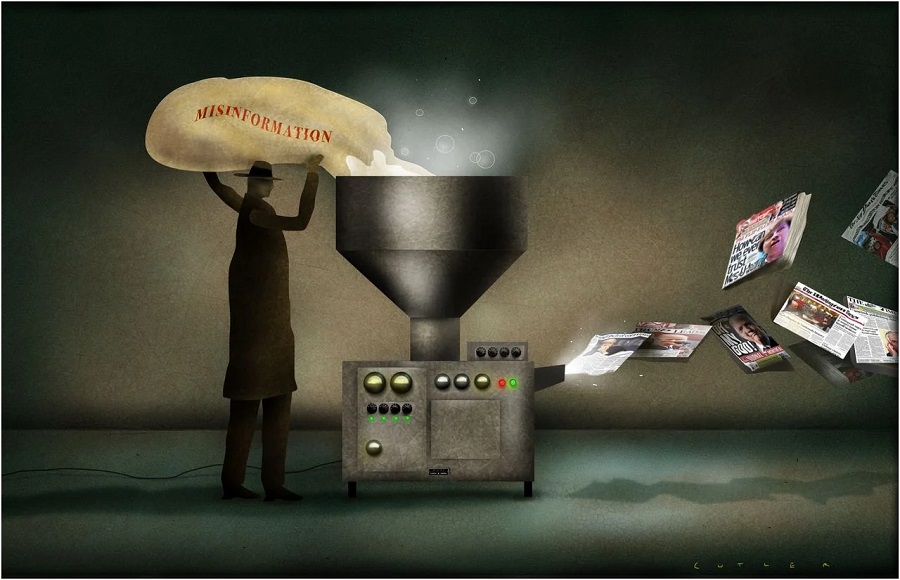-By LeN Political Correspondent

(Lanka-e-News -25.Aug.2025, 11.10 PM) When former Sri Lankan President Ranil Wickremesinghe was led from the custody of the Criminal Investigation Department (CID) into a Colombo courtroom, it was the culmination of a scandal that had been simmering for weeks. The case—centred on the alleged misappropriation of public funds during a so-called “private” visit to the United Kingdom—was, by any measure, grave. Yet in the midst of courtroom drama, another theatre of deception unfolded: the media’s curious willingness to twist the narrative.
The CID has levelled charges against Wickremesinghe under sections of the Penal Code dealing with criminal misappropriation and breach of trust, as well as the Public Property Act—laws drafted precisely to prevent the siphoning off of state assets for private use. At issue is the spending of nearly 17 million rupees of taxpayer money to finance a private trip to Wolverhampton University, where Mrs. Wickremesinghe was conferred an honorary title.
The CID, having presented evidence before the magistrate, sought to deny bail—a request the court readily granted. The judge ruled that there were “no special circumstances” to justify release, noting that ill health, while a matter for doctors, is not a legal ticket out of remand custody. Wickremesinghe would, therefore, remain under state care until the trial advanced.
Enter The Leader and Hiru News, two media platforms whose coverage bore little resemblance to events inside court. Their accounts spoke of political vendettas, fabricated suggestions of ministerial sympathy visits, and the portrayal of Wickremesinghe not as a defendant in a corruption case but as a statesman unfairly persecuted.
Hiru News in particular claimed—without evidence—that Prime Minister Harini Amarasuriya had personally visited the prison to offer moral support. The report was not only false but so inflammatory that Sri Lanka’s Inspector General of Police has now instructed the CID to investigate the publication. Sanctions, ranging from heavy fines to suspensions of broadcasting licences, are firmly on the table.
The controversy has re-opened old debates about the relationship between politics, money, and media ownership in Sri Lanka. The Leader website, run by Ruwan Ferdinand, has long been viewed with suspicion by government watchdogs. Its owner, critics allege, benefitted from multiple alcohol import licences under the late Finance Minister Mangala Samaraweera—a legacy that continues to colour perceptions of editorial independence.
That the Leader has been among the most vocal defenders of Wickremesinghe—arguing that “in any other country” the use of public funds for private travel would not constitute a crime—has done little to enhance its credibility. For many Sri Lankans, the line between journalism and lobbying has blurred beyond recognition.
The Ranil saga is not only a courtroom drama but a litmus test for the credibility of Sri Lanka’s press. At stake is the principle that while the media may interpret, analyse, or even criticise, it cannot falsify. To report that a Prime Minister visited a prison when she demonstrably did not is not journalism; it is fiction with political purpose.
The government, for its part, insists that any investigation into media misconduct will not infringe upon free expression but rather ensure accountability. “Freedom of the press,” one senior official remarked, “cannot mean freedom to deceive.”
If Wickremesinghe’s case demonstrates the dangers of leaders treating state coffers as a personal wallet, the media’s response reveals an equally troubling problem: the willingness of powerful outlets to bend facts for allies. The lesson is uncomfortable but unavoidable—Sri Lanka’s path out of political corruption must also be a path out of media corruption.
As Wickremesinghe awaits his next day in court, it is not only his reputation on trial. The media, too, stands accused—by the public if not by a judge—of misusing its mandate. In the end, whether it is politicians or journalists, the same truth applies: when you live off public trust, misappropriation—be it of money or of facts—is equally unforgivable.
-By LeN Political Correspondent
---------------------------
by (2025-08-25 18:08:21)
Leave a Reply